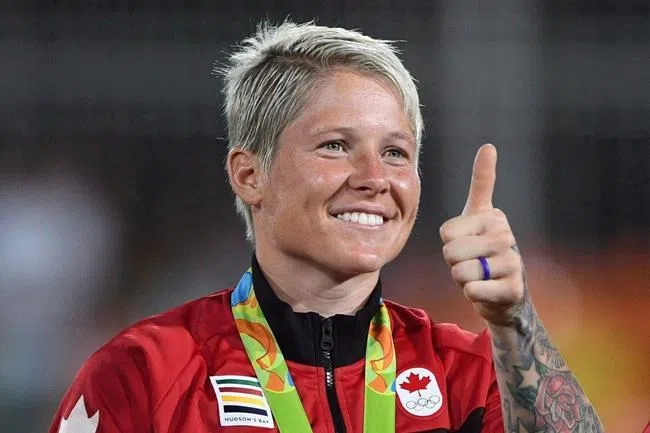
Rugby sevens star Jen Kish calls it quits after sacrificing her body for Canada
TORONTO — After sacrificing her body for Canada for 13 years, Jen Kish called it quits Monday.
The former Canadian rugby sevens skipper had planned to retire in July at the end of the season. But hip and neck injuries forced the 29-year-old from Edmonton to move up that retirement date.
The news drew a flurry of congratulations.
“What a LEGEND,” tweeted Canadian international soccer goalkeeper Stephanie Labbe.
